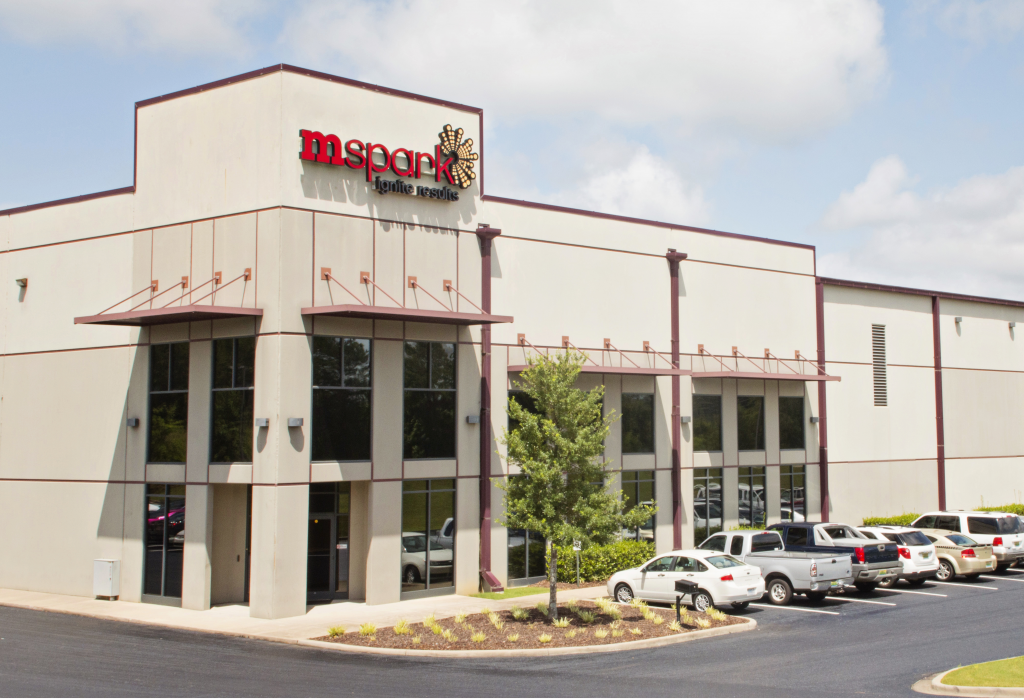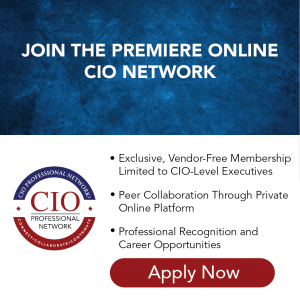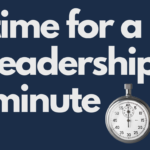Jamie Adams serves as Chief Information Officer for Birmingham, Alabama-based Mspark, which combines analytics with data-driven direct mail and digital solutions to reach over 27 million American households each month.
In this issue, Jamie walked us through her career path, from small town to over a decade at Michelin to the hospitality industry to her current role. She also spoke with us about her ongoing service toward ensuring that local universities are focused on key areas of importance for technology.
In addition, Jamie shared with us the ways in which she is assisting Mspark in tackling the industry shift from print to digital, as well as her experience in enabling a half-dozen corporate acquisitions and growing the business without significantly increasing expenses.

Walk us through your CIO path. How did you decide to pursue a career in technology, and how did you progress to your current organization?
I started out in the medical field but ventured into technology, where I realized how much technology could benefit companies and grew to love the field. As a result, I chose to pursue a business degree and focus on management information systems (MIS) at the University of Georgia. I also knew that I’d have a high chance of securing a good job right out of college. That was my goal because I grew up in a very small city, had a humble upbringing and wanted to move on to something bigger and grander. I focused strongly on academics in pursuit of that goal.
Michelin Corporation recruited me from UGA, and I spent 14 years of my career with them. There, I had the opportunity to work in many different areas of a global Fortune 500 company – from IT to research and development to marketing and sales – but always in tech-focused leadership positions. During my last five years with Michelin, I led a global team that supported the technology needs of Michelin’s retread franchise network and was part of the team responsible for executing a strategy that produced tremendous growth for the company.
I left Michelin only because I received an offer to transition to a CIO position at The Cliffs, and I felt that it was time to gain experience in a different industry.
The Cliffs was a private equity-backed hospitality and real estate company which owned resorts, private country clubs, golf courses, spas, retail shops, and fitness centers. After they reached out to me, I met with their executive team and was only supposed to spend an hour or two with them but ended up spending half a day with them. It was a great opportunity to venture out, try something different, own a technology strategy, attain experience as a C-level executive reporting to a CEO and board of directors. During that time, I learned the importance in the hospitality industry of developing personal connections and taking time to build relationships. Given that it was a smaller organization, I was able to accomplish things very quickly.
As is the goal with private equity, The Cliffs eventually sold so I rotated out and moved to Atlanta, looking to buy into a company that provided accounting and technology services.
During that time, the opportunity to be CIO at Mspark opened, and I worked with CIO Partners on that placement. The transition was easy because Mspark has a similar work culture to The Cliffs. They were looking to bring someone in who had the large corporate experience and knowledge of the structure. The aim was to bring that experience into a mid-market company and transform it from the traditional IT model to more of a technology innovation center, focused on achieving higher business results.
Would you consider yourself a CIO, a CTO, or a hybrid? Why? What are the essential differences?
I would say that I’m more of a hybrid because I am responsible for technologies that run the business internally, as well as customer-facing technologies that grow the business externally. In larger organizations, the CIO may staff a CTO position because they need someone focused on leading innovation for customer-facing technology.
What initiatives have you overseen to date in your time with your organization? What’s on the horizon?
The unique situation at Mspark is we’re in the direct mail advertising business, which is an $18 billion, mature industry that’s in a decline stage. The industry has shifted because of digital advertising, so we’ve had to look at ways that we can innovate, evolve, move faster and be more efficient. That requires enabling technology at the core of our operations, so my main focus has been helping Mspark – as I did at The Cliffs – to develop an aligned technology strategy designed to boost EBITDA growth and gain a competitive edge. Ultimately, we want to sell the company, and we value a company based on EBITDA.
At Mspark, we came up with a two-year technology initiative called TechWave which contributed to about 33% growth in EBITDA. We chose to focus on revenue generating initiatives, process innovation and automation to improve our operating efficiencies.
Within two years, we completed six acquisitions and grew the business without significantly increasing expenses. We streamlined back office processes and implemented automation so that we could scale our business.
In addition, we improved our value proposition and generated additional revenue with advanced data targeting so that we could advertise to a more targeted geographic audience. Ultimately, that’s what our clients want because the more targeted we can be, the better the return on their advertising spend. For example, we are able to be very targeted with our postcard products, which are popular now. We’re now able to locate people pre-move and post-move and work with our clients to be sure that we deliver a direct mail piece to them three weeks before they move and one week after they move – a timeframe when they’re more likely to purchase products.
We also looked at how to improve the customer experience, streamlined our order fulfilment process and implemented technology in that area to deliver a frictionless experience for our customers and internal sales force.
Share your thoughts on the availability of IT talent. What strategies do you employ, and what’s different in your organization?
In our area – Birmingham, Alabama – tech talent is very limited and the competition is very high. We’ve had to relocate people here for jobs, and we’ve embraced a remote workforce. But I think people are very attracted to Mspark because of the culture.
Mspark was awarded as a Best Place to Work for the last two years, a from what I’m hearing, our people feel like they’re partners in the company. They feel valued. We value cross-functional collaboration, which is different for some companies. We are not siloed; we’re very transparent with communication. You can accomplish results very quickly because there’s very little bureaucracy or politics, and people seem to be attracted to that.

We offer internships, and I’m very involved in working with local universities on those programs. I also serve on the Advisory Council for the University of Alabama at Birmingham, which helps to shape the educational plan for IT and ensure that the local universities have degrees that are focused on key areas of importance at this point in time and where we see technology going in the future.
What new or disruptive technology issues or emerging trends do you think will impact your industry in the future?
One of the biggest areas in which we can innovate is consumer-based mobile apps so that we can deliver just-in-time advertising to help drive traffic to retail customers. We’re in the process of working with our partners to develop these apps using geo sensing.
I am also exploring how we can utilize artificial intelligence and ecommerce platforms in order to automate a large portion of back office functions and enable us to serve up ads to clients to increase reorders based on historical behavior.
How do you foresee your organization being different in two years, and how do you see yourself shaping that change?
As CIO, I own and lead change and am at the forefront of it, and the new initiatives that I mentioned earlier will certainly be on our team’s roadmap. Recently, I’ve also led new product launch teams with the new mover products that I mentioned earlier, which was outside of the CIO role. At the time, we didn’t have a CMO, so I was tasked with leading that initiative.
There are a lot of areas of opportunity for CIOs because we get so much exposure to the entire business and aren’t necessarily restricted to just one specific area like finance. We have to understand every area of a company and the biggest opportunities for growth.
What personal traits and attributes are essential for today’s CIO versus 10 to 20 years ago?
From 20 years ago, IT is transforming to an innovation center. The modern CIO is expected to be a strategic business partner who’s technically adept. CIOs have the unique position to be able to impact all aspects of the company and drive that cross-functional IT-business collaboration – to find opportunities to add the highest value and then drive that change. Strong leadership, communication and business skills are critical.
What advice would you give for someone who aspires to be a CIO?
I would tell them that, if CIO is the path that they want to travel, then they have to be willing to embrace and enjoy change, to evolve with the role and with the ever changing technology landscape, and to learn to be a great salesperson. You’ll be working with and accountable to business leaders, each of whom thinks that their initiative is the most important. As a CIO you have to take all of these different initiatives and help them see the ones that truly are the most important – and do it with a smile.
One of the reasons that I enjoyed MIS as a major was because it teaches you how to utilize technology to help a company achieve higher business results. If you’re looking to become a CIO, then you’re going to have to attain business and technical skills – through degrees or an advanced degree, for example – and merge the two so that you have the best of both worlds.
How do you decompress from the challenges of being a CIO? What do you do for fun?
I have a morning exercise and meditation routine. I also enjoy spending time with family and friends and taking time off to travel and try new things. The last three years I’ve traveled to six countries where I had never been. I also earned a scuba diving certification last year and absolutely love it. Many of the trips I made were for scuba diving.
Who have been your biggest influences, and why?
It’s been a combination of people. I grew up with Michelin and had the opportunity to work directly with Norman King, who was the CFO at the research and development center, as well as Henry Schmitt, who was the president of Michelin Retread Technologies. They were very humble leaders who took the time to help and invest in younger people like me to grow and learn new things. They believed in me, empowered me, and held me accountable for results.
As you become more seasoned in your career, you’re still learning from other people. The CEO I work for now – Steve Mitzel – has been a great leader and mentor. He’s empowered me to move into other areas of the business. The fact that he trusted me enough to, for instance, lead functions in the interim that a CMO would do in order to help the organization through a time when we didn’t have a CMO was inspiring and encouraging.
Which books would you most recommend that others read?
There are two that I read recently and highly recommend. One of them is How Did That Happen? by Roger Connors and Tom Smith. It’s centered around leadership development and building a culture of accountability – which people take accountability to think and act in a manner necessary to achieve desired results. It also addressed how to hold people accountable in a positive way – that they walk away from a conversation feeling inspired and good about their work and results and motivated to accomplish more.
Another is A Life of Excellence by Richard Simmons, which challenges you to think about how you are making a lasting difference. Are you on a path to reach your full potential, and how do you want to be remembered?
If you weren’t doing the job that you have today, what would be your alternative dream job?
I have an entrepreneurial spirit, so I would probably choose to be a venture capitalist, investing in a variety of companies and being hands on in helping them with strategy and inventing new products and services that have a positive impact, whether on people, the economy, or the environment.
What advice would you offer our readers that we haven’t already discussed?
I would say to anyone who is career-driven, it is important to take a step back, reflect and ensure that you’re focusing and prioritizing what truly matters. It is easy to get wrapped up and distracted, but the ability to prioritize and balance both work life and family life is critical.











